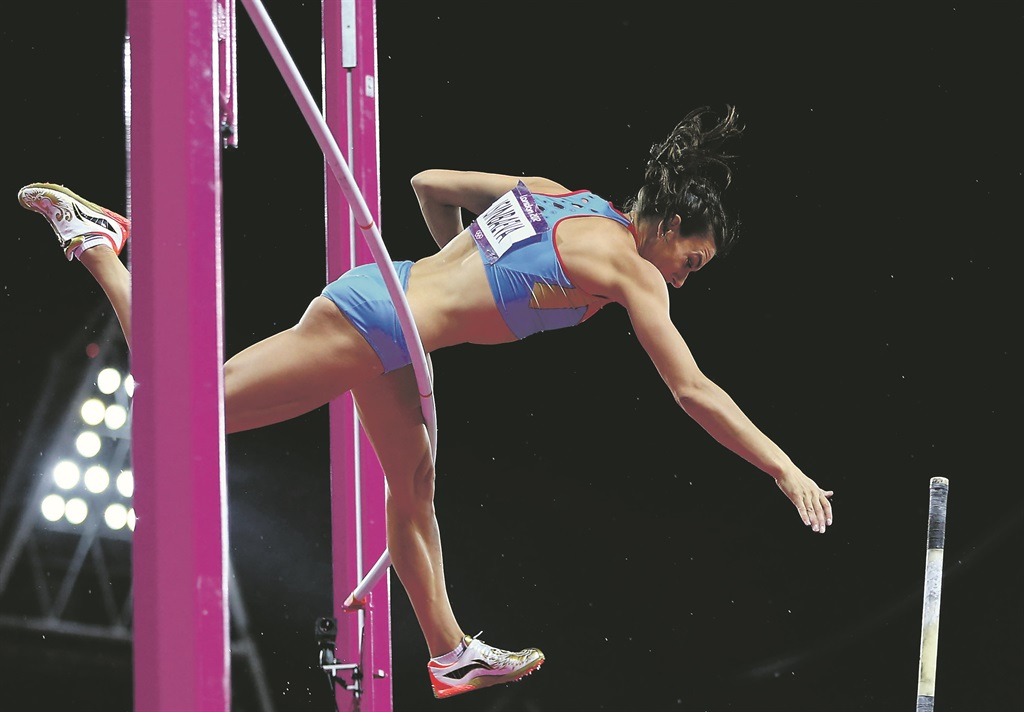
Russian athletes who have remained drug-free will probably pay the price because of political expediency
US sprinter Justin Gatlin will – if all goes according to plan – participate at the Rio de Janeiro Olympics in August, whereas Russian pole vaulter Yelena Isinbayeva will probably not make it to Brazil, unless the Court of Arbitration for Sport rules in favour of Russian athletes being allowed to compete at the games.
The difference between them, apart from the fact that the American will participate at this year’s Olympics and Isinbayeva will not, is that one is a drug cheat, while the other is clean.
So far, so good. Except for the fact that sprinter Gatlin is the drug cheat, while the Russian athlete can look back at a glittering career spanning 18 years without ever having tested positive for a banned substance.
Gatlin, who won Olympic gold in the 100m in 2004 and is one of the favourites for a podium finish in Rio, was twice banned for doping violations and avoided a life ban in 2006 because he cooperated with officials.
Isinbayeva, on the other hand, has undergone countless doping tests and has never returned a positive finding.
The 34-year-old, two-time Olympic champion and current world record holder is undoubtedly the greatest female pole vaulter of all time, but has fallen foul of a decision made by the International Association of Athletics Federations (IAAF) – and endorsed by the International Olympic Committee – to ban all Russian athletes over doping allegations.
Although the committee announced this week that Russian athletes could possibly compete in Rio under the Russian flag if they underwent further tests, the IAAF has insisted that their earlier decision be upheld.
The international body went on to state that the Russian Athletics Federation remained suspended. “Russian athletes (can) apply for eligibility, on an exceptional basis and subject to meeting strict criteria, to compete at the Olympic Games, in an individual capacity as neutral athletes, not under any country’s flag.”
This leaves Isinbayeva with an appeal to court of arbitration as her only option. “If they are satisfied with my appeal, then I will have the right to compete in Rio under the Russian flag,” she said.
She had earlier penned an open letter expressing her disappointment. “Those of us who have never used banned substances will be punished for the behaviour of others ... They (dope cheaters) must be held accountable; after all, it is because of the reprehensible actions of such people that I am in this predicament, fighting for my right to compete.
“I have devoted my life to my sport and sacrificed countless hours pushing my body for the chance to compete one last time at the Olympics ... But instead of focusing on that goal ... I have been struggling with the uncertainty of whether I can even compete in Brazil. It has been a physically exhausting and emotionally draining time.”
It is not only Russian athletes who have been hit by a ban. Tennis silver medallist Maria Sharapova earlier this year received a two-year suspension for the use of meldonium, which was placed on the banned list from January 1.
The tennis star has, however, been included in the Russian Olympic team and can take some consolation from the fact that swimmer Yuliya Efimova, who was banned for taking the same substance, had her provisional ban lifted after it was ruled that there was uncertainty over how long the substance remained in the body.
Seasoned British sports journalist John May has some sympathy with Isinbayeva’s plight. “It would appear that in this case, the basic right of a presumption of innocence has been turned into a presumption of guilt.
“And even though the IAAF has said that athletes would be able to compete in exceptional circumstances, it is thought this excludes those based in Russia, as this is not deemed to have had an effective testing system.”
May believes that a new approach to sport has led to the decision. “The scandal surrounding [international football governing body] Fifa has prompted all sports to take a long, hard look at themselves. This, in turn, has given them the confidence to take decisions such as the one banning Russia. It is pretty much a political decision.”
He suggested that, as Russia was hosting the 2018 Fifa World Cup, it also put some pressure on the country to accept decisions, even if they were unfair.
For athletes such as Isinbayeva, the court of arbitration seems the only option. And should this attempt fail, they will be forced to sit at home and watch a proven cheat such as Gatlin go forth in pursuit of Olympic medals.




 Publications
Publications
 Partners
Partners








